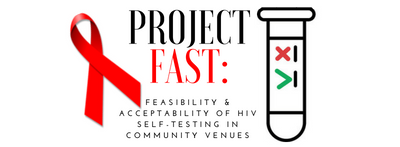PROJECTS

Project FAST: Feasibility & Acceptability of HIV Self-Testing in Community Venues
The goal of this study is to evaluate the feasibility and acceptability of HIV self-testing for young, heterosexual women in high HIV prevalence communities in Porto Alegre and São Paulo, Brazil. Brazil has the largest number of people living with HIV in Latin America. Heterosexual HIV transmission is responsible for 97% of new infections in women, with rates of new infections growing among youth (15-24 years) and in urban areas (i.e., Porto Alegre, São Paulo). Brazil’s socialized healthcare system has almost eliminated mother-to-child transmission of HIV, but HIV testing is extremely uncommon among women outside of prenatal care. Women without children are 9 times less likely to have ever been tested for HIV, compared to women with children, and about 25% of women receive a late HIV diagnosis.
The recent (2017) approval of use of HIV self-testing kits in Brazil provides an opportunity to develop a strategy targeted for heterosexual youth and urban communities who would otherwise be missed by interventions that focus on other key populations. Informed by the Ecosocial Theory, we will carry out formative qualitative research (e.g., informal interviews, ethnographic mapping, in-depth interviews, focus groups) to develop strategies to bolster inter-agency, community-based collaboration among healthcare professionals, community-based organizations (CBOs), and community venues aimed to improve access and availability of HIV prevention, testing (including self-testing kits), and linkage to HIV and primary care. This study will develop a community-based HIV-testing strategy targeted for young heterosexual women that integrates HIV self-testing and linkage to care via partnerships between CBOs and primary health clinics.



